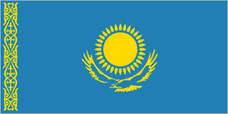|
On November 4, 2020, the OECD will hold a public consultation workshop in relation to the Draft Toolkit on Tax Treaty Negotiations.
The toolkit authors and expert speakers will discuss how the toolkit can help developing countries, followed by a demo of the interactive, web-based version of the toolkit and a feedback roundtable with experienced negotiators. Registration is currently open. See Registration details On October 29, 2020, the OECD released the new methodology for the peer review of BEPS Action 13, on country-by-country reporting.
The documents form the basis on which the continuing BEPS Action 13 peer review processes will be undertaken. The compilations include the Terms of Reference which are unchanged from the original mandate in 2017 and set out the criteria for assessing the implementation of the minimum standard, and the Methodology which sets out the procedural mechanism by which jurisdictions will complete the peer review from 2020 onwards. This includes the process for collecting the relevant data, the preparation and approval of reports, the outputs of the review and the follow-up process. See Release On October 28, the US Internal Revenue Service (IRS) announced that it is updating parameters that the Advance Pricing and Mutual Agreement program (APMA) will follow in implementing resolutions it has reached on behalf of U.S. taxpayers in mutual agreement procedure and advance pricing agreement cases negotiated under US income tax treaties.
The updates significantly curtail so-called “telescoping” of the results of these cases into current tax years; US taxpayers will generally be required to amend the applicable year’s federal income tax return to reflect the changes in taxable income per competent authority resolutions instead of reflecting the changes to taxable income in current tax years. The update reflects the IRS’s efforts to promote compliance with changes brought to US tax law by the Tax Cuts and Jobs Act and its many interlocking provisions that require careful determination of a US taxpayer’s taxable income and tax attributes. See Announcement On October 22, 2020, the OECD released the stage 2 peer review monitoring reports for Czech Republic, Denmark, Finland, Korea, Norway, Poland, Singapore, and Spain.
The reports were released as part of the OECD’s work on Action 14 of the base erosion and profit shifting work. These reports evaluate the progress made by these eight jurisdictions in batch 3, in implementing any recommendations resulting from jurisdictions' stage 1 peer review reports. The stage 2 monitoring takes into account any developments in the period August 1, 2017 – February 28, 2019 and the MAP statistics are based on years 2016, 2017, and 2018. The results from the peer review and peer monitoring process demonstrate positive changes across all eight jurisdictions, although not all show the same level of progress. See Reports On October 21, 2020, Hong Kong’s Chief Executive in Council made two orders to implement the tax treaties with Serbia and Georgia.
Both orders will be tabled at the Legislative Council on October 28 for negative vetting. The treaties will enter into force after both Hong Kong and the respective treaty partners have completed their ratification procedures. Hong Kong signed the tax treaties with Serbia and Georgia in August and October 2020, respectively. See Announcement On October 12, 2020, the OECD Inclusive Framework on BEPS released for public comments the Reports on the Pillar One and Pillar Two Blueprints.
These Blueprints reflect the convergent views on many of the key policy features, principles and parameters of both Pillars, and identify remaining technical and administrative issues as well as policy issues where divergent views among Inclusive Framework members remain to be bridged. Interested parties are invited to send their written comments by December 14, 2020. See Release On October 9, 2020, the US Treasury Department published in the Federal Register final regulations setting out guidance regarding the base erosion and anti-abuse tax (BEAT) imposed on certain large corporate taxpayers with respect to certain payments made to foreign related parties.
The final regulations affect corporations with substantial gross receipts that make payments to foreign related parties. The final regulations are effective two months after the date of publication in the Federal Register. See Final Regulations Registration is open for the OECD’s upcoming tax webcast.
The live webcast will be held on October 12, 2020, between 15:00-16:00 (CEST). The webcast will feature experts from the OECD’s Centre for Tax Policy and Administration who would provide the latest update on the OECD’s current work on international tax matters. The webinar will feature a 45-minute presentation, followed by a 10-15-minute Q&A session. See Registration details On 1 October 2020, the OECD Multilateral Convention to Implement Tax Treaty Related Measures to Prevent Base Erosion and Profit Shifting entered into force in respect of Kazakhstan.
Kazakhstan signed the MLI on June 25, 2018, and deposited its final MLI Position with the OECD on June 24, 2020. Kazakhstan wishes to cover 54 of its tax treaties under the MLI. |
Archives
March 2024
|
COMTAX ABC/o Ekonomiforetaget Baehring Dahl AB
Berga Alle 3 25452 Helsingborg Sweden |
CONTACTTel.: +46 46 590 07 70
E-mail: support(@)comtaxit.com |
INFORMATION |
© COPYRIGHT 1985 - 2024 COMTAX AB. ALL RIGHTS RESERVED.








